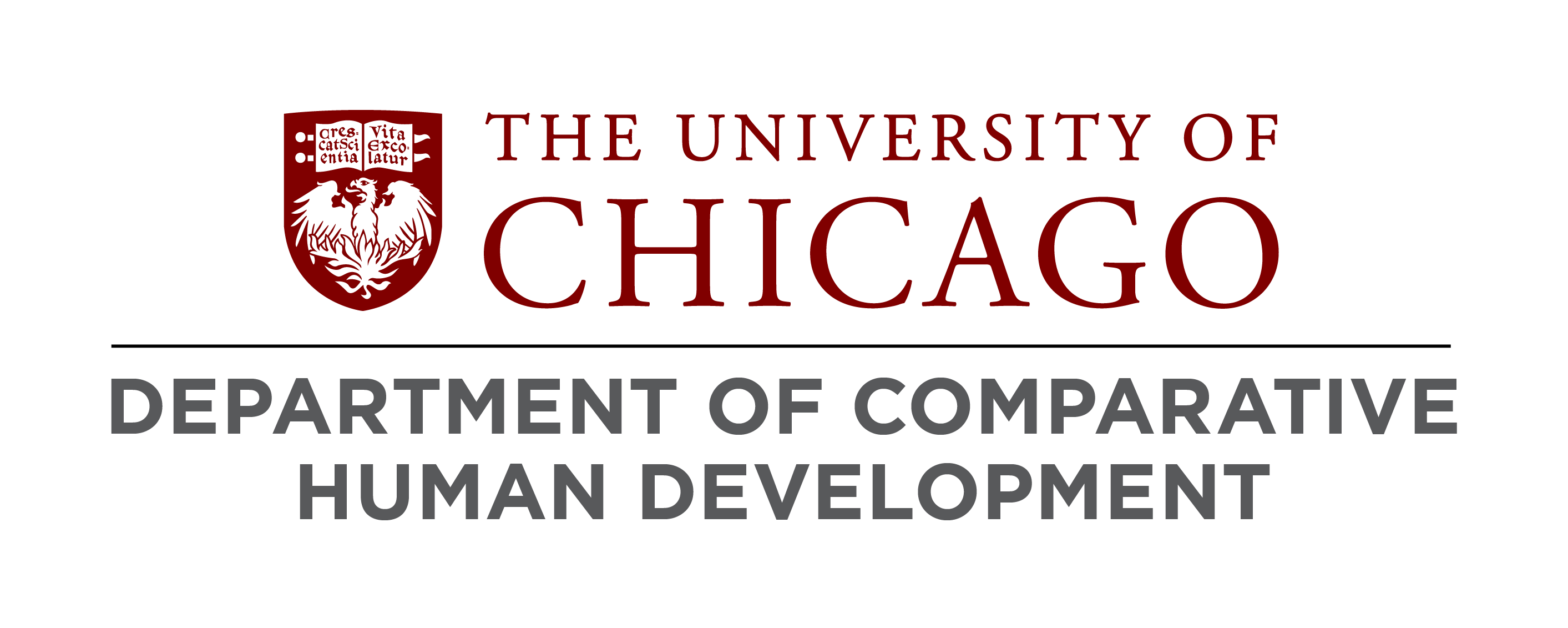
I am an interdisciplinary behavioral scientist with a wide range of interests. I am interested in all aspects of human behavior and mental life as well as in all aspects of biological and cultural evolution. I am also interested in the history of ideas, creativity, knowledge formation, and the contributions that art and literature can make to knowledge production.
I am also affiliated with the Institute for Mind and Biology and with the Institute on the Formation of Knowledge at the University of Chicago.
Teaching
Courses taught in recent years:
Darwinism and Literature
Evolution and Economics of Human Behavior
History of Evolutionary Behavioral Sciences
Primate Behavior and Ecology (aka Primate Origins of Human Nature)
Scientific and Humanistic Contributions to Knowledge Formation
Accolades
1991 Giovanni Battista Grassi Prize, Accademia Nazionale dei Lincei
2000 American Psychological Association Distinguished Scientific Award
for Early Career Contribution to Psychology
2001 Career Development Award, National Institute of Mental Health
2005 Fellow, American Association for the Advancement of Science
2007 Resident Fellow, Rockefeller Foundation Bellagio Study and Conference Center
2010 Fellow, Association for Psychological Science
2017 Margo Wilson Award, Human Behavior and Evolution Society
2019 Fellow, Midwestern Psychological Association
2020 Visiting Senior Fellow, Italian Academy for Advanced Studies, Columbia University
2020 Visiting Senior Fellow, Institute for Advanced Studies, Università di Bologna
2021 Ferrari Soave Prize, Accademia delle Scienze di Torino
Recognition
Ranked #27 among Top Italian Scientists in the category Natural & Environmental Sciences
https://topitalianscientists.org
Editorial Service
2014-present Founding Editor in Chief, Adaptive Human Behavior and Physiology (Springer)
2024-present Editor in Chief, Evolutionary Behavioral Sciences (American Psychological Association)
Selected Publications
Books and Edited Books
D. Maestripieri (ed.). (2003). Primate Psychology. Cambridge, MA: Harvard University Press.
D. Maestripieri. (2007). Macachiavellian Intelligence. How rhesus macaques and humans have conquered the world. Chicago: The University of Chicago Press.
D. Maestripieri, J. M. Mateo (eds.). (2009). Maternal Effects in Mammals. Chicago: The University of Chicago Press.
D. Maestripieri. (2012). Games Primates Play. An undercover investigation of the evolution and economics of human relationships. New York: Basic Books.
C. Carere, D. Maestripieri (eds.). (2013). Animal Personalities: Behavior, Physiology, and Evolution. Chicago: The University of Chicago Press.
D. Maestripieri. (2019). Literature’s contributions to scientific knowledge. How novels explored new ideas about human nature. Newcastle, UK: Cambridge Scholars Publishing.
D. Maestripieri. (2019). Science Meets Literature. What Elias Canetti’s Auto-da-Fé Tells Us About the Human Mind and Human Behavior. London, UK: Anthem Press.
Articles
D. Maestripieri. (1993). Vigilance costs of allogrooming in macaque mothers.
The American Naturalist, 141: 744-753.
D. Maestripieri, J. Call. (1996). Mother-infant communication in primates.
Advances in the Study of Behavior, 25: 613- 642.
D. Maestripieri, K. A. Carroll. (1998). Risk factors for infant abuse and neglect in rhesus monkeys.
Psychological Science, 9: 143-145.
D. Maestripieri, K. A. Carroll. (1998). Child abuse and neglect: Usefulness of the animal data.
Psychological Bulletin, 123: 211-223.
D. Maestripieri. (2001). Biological bases of maternal attachment.
Current Directions in Psychological Science, 10: 79-83.
D. Maestripieri (2005). Effects of early experience on female behavioural and reproductive development in rhesus macaques.
Proceedings of the Royal Society of London B, 272: 1243-1248.
D. Maestripieri. (2005). Early experience affects the intergenerational transmission of infant abuse in rhesus monkeys.
Proceedings of the National Academy of Sciences U.S.A., 102: 9726-9729.
J. R. Roney, K. N. Hanson, K. M. Durante, D. Maestripieri. (2006). Reading men’s faces: Women’s mate attractiveness judgments track men’s testosterone and interest in infants.
Proceedings of the Royal Society of London B, 273: 2169-2175.
C. S. Barr, M. L. Schwandt, S. G. Lindell, J. D. Higley, D. Maestripieri, D. Goldman, S. J. Suomi, M. Heilig. (2008). Variation at the mu-opioid receptor gene (OPRM1) influences attachment behavior in infant primates.
Proceedings of the National Academy of Sciences U.S.A., 105: 5277-5281.
P. Sapienza, L. Zingales, D. Maestripieri. (2009). Gender differences in financial risk aversion and career choices are affected by testosterone.
Proceedings of the National Academy of Sciences U.S.A., 106: 15268-15273.
J. P. Higham, K. D. Hughes, L. J. N. Brent, C. Dubuc, A. Engelhardt, M. Heistermann, D. Maestripieri, L. R. Santos, M. Stevens. (2011). Familiarity affects assessment of facial signals of female fertility by free-ranging male rhesus macaques.
Proceedings of the Royal Society of London B, 278: 3452-3458.
C. Dubuc, S. Winters, W. Allen, L. Brent, J. Cascio, D. Maestripieri, A. Ruiz-Lambides, A. Widdig, J. Higham. (2014). Sexually-selected skin colour is heritable and related to fecundity in a non-human primate.
Proceedings of the Royal Society of London B, 281: 20141602.
S. Zilioli, D. Ponzi, A. Henry, K. Kubicki, N. Nickels, M. C. Wilson, D. Maestripieri. (2016). Interest in babies negatively predicts testosterone responses to sexual visual stimuli among heterosexual young men.
Psychological Science, 27: 114-118.
D. Maestripieri, A. Henry, N. Nickels. (2017). Explaining financial and prosocial biases in favor of attractive people: Interdisciplinary perspectives from economics, social psychology, and evolutionary psychology.
Behavioral and Brain Sciences, 40: 1-16.
J. E. Madrid, T. M. Mandalaywala, S. P. Coyne, J. Ahloy-Dallaire, J. P. Garner, C. S. Barr, D. Maestripieri, K. J. Parker. (2018). Adaptive developmental plasticity in rhesus macaques: the serotonin transporter gene interacts with maternal care to affect juvenile social behaviour.
Proceedings of the Royal Society of London B, 285: 20180541.
 THE UNIVERSITY OF CHICAGO
THE UNIVERSITY OF CHICAGO

